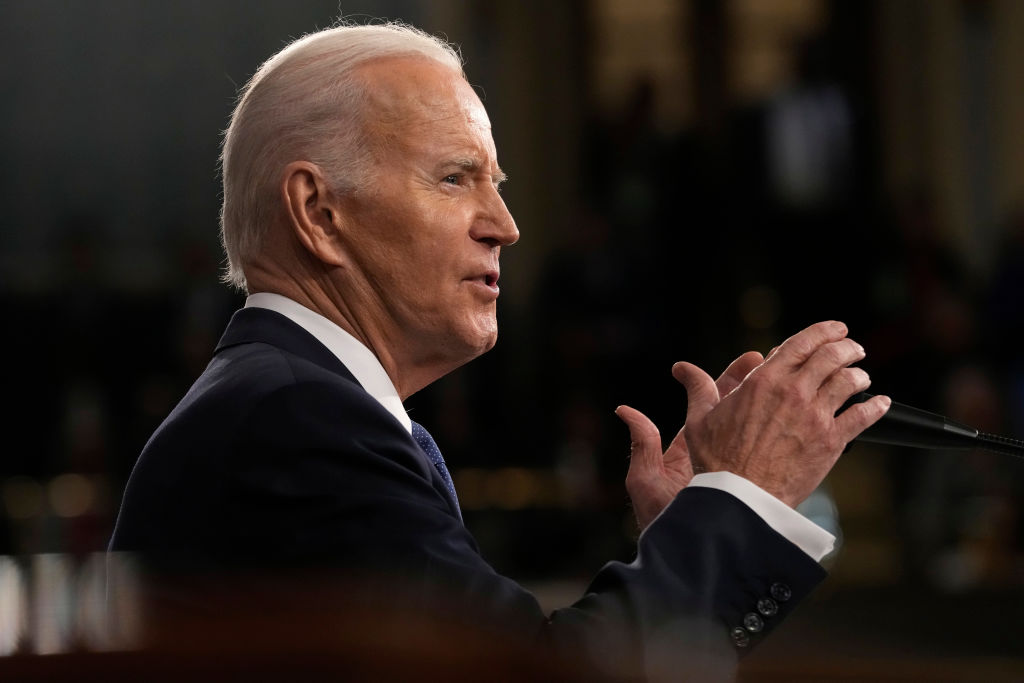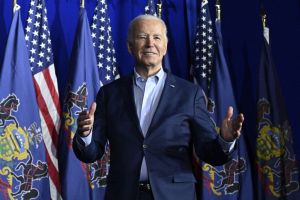Joe Biden’s lengthy State of the Union address on Tuesday saw him call on Congress to pass a bevy of policies, most of which were regurgitations of his previous proposals. Here’s a look at some of the policies that were mentioned by the president.
Capping insulin prices at $35
Everyone knew this would be on the agenda after the Inflation Reduction Act passed Congress last August. The IRA’s Medicare copay cap was just a foot in the door, with a push for further drug price controls an inevitability. The problem is that price controls do not work.
Ed Haislmaier of the Heritage Foundation succinctly outlines how the problem can be mitigated responsibly. The most obvious option is to eliminate the prescription requirement for insulin. Biden clearly knows this: he’s touted ending prescriptions for hearing aids, which drastically lowered their prices, allowing more Americans to have access to the life-changing devices. Why not do the same for insulin?
Another option is to reform how pharmaceutical benefit managers (PBMs) are paid. Currently, they make their money by getting the buyer a certain discount and keeping the extra money saved. Changing this to a fee-based payment structure would better align the incentives for PBMs to get the best bang for the patient’s buck.
Finally, the government makes it too difficult to create a generic alternative to the main insulin brands. As Haislmaier explains, insulin is a biologic drug, which requires more complex manufacturing than chemical drugs, making the regulatory structure substantially more difficult. Generic drugs can get to market for less in part because they do not have to go through the traditional approval process (the name brand already did that), but that is assuming they are exactly the same as the name brand. Biologics are more difficult to make identically — hence the regulatory issues. Ideally, the regulatory process for generic biologics would be streamlined.
Stop the flow of fentanyl
Biden also laid out policies for mitigating the flow of fentanyl into the United States. His plan included increased drug detection devices in ports of entry, cooperating with shipping companies like FedEx to increase parcel inspections, and “a major surge to stop fentanyl production, sale, and trafficking.”
While Biden called for “equipment and officers to secure the border,” it seemed rather disingenuous at best, like his largely performative trip there. Until the southern border is brought under control, it will be very difficult to manage the flow of fentanyl into the US. Vastly increased border security, the installation of extensive barriers, and better coastal surveillance and interdiction are all key. Curtailing production will also require Mexico’s and China’s cooperation — questionable in the current geopolitical environment.
Stopping corporate stock buybacks
Biden also escalated the attack on corporations buying back their stock with their profits, proposing quadrupling the tax on said buybacks. Like the criticism of shorting after the GameStop brouhaha, while the practice might look strange and cynical from the outside, it plays an important role in the market.
Buying back shares is a choice that a company makes based on its financial situation. The highest duty of a company is its fiduciary responsibility to its shareholders — to maximize shareholder value. Buying back shares often results in higher stock prices, which benefit shareholders. The process can be used like dividends.
Share buybacks are also useful if the company is looking to consolidate its ownership. Fewer outstanding shares mean fewer potential owners.
It is important to note that share buybacks are not without risk. They’re just another way for a company to use its cash.
Free preschool and two years of community college
Biden reiterated his desire for free preschool and two years of community college. Free preschool is basically government funded childcare, which is not something the federal government should be spending taxpayer money on. At this point, the government would be paying for childcare from age three onwards. It would also likely cost somewhere in the ballpark of $200 billion if Biden’s American Families Plan proposal is any indication.
Two years of free community college is no better: it would cost around $109 billion, taking the total plan’s cost to over $300 billion. This at a time when America’s national debt is over $31 trillion, and there are no signs of fiscal responsibility returning to DC anytime soon.
Further, it appears that there would be no requirements for a student’s program of study at community college. Given the proliferation of majors with little practical value, this would mean throwing money at dubious educational endeavors that would not prepare students for successful careers. If nothing else, a program costing $100+ billion should make sure it’s giving graduates the best chance possible.
Banning ‘assault weapons’
Despite the fact that “assault weapon” is more of a political term than a correct one, Biden still called for a ban on them. He also claimed that the 1994 ban on “assault weapons” had resulted in fewer mass shootings, despite the data being ambiguous.
The policy makes little sense in the current environment: there are over 20 million AR-15s, and millions more of what Biden appears to mean by “assault weapons.” Even if those tens of millions of guns disappeared tomorrow, the impact would likely not be significant, because mass shooters would turn (and often have turned) to other firearms, such as semi-automatic handguns.
There is, of course, also the problem of whether or not such a ban would infringe on Americans’ Second Amendment rights.


















